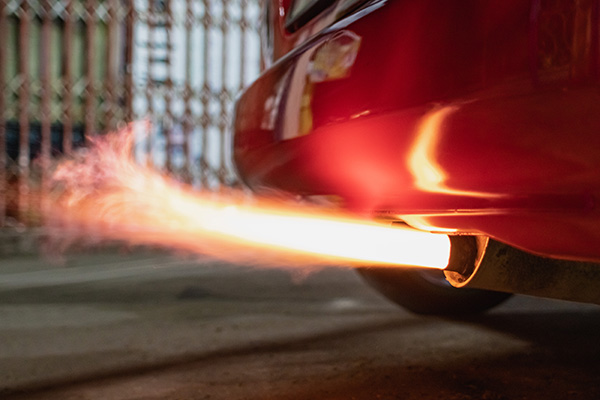
A sudden loud bang or popping sound coming from your car can be startling — and even embarrassing. This phenomenon, known as a backfire, occurs when fuel ignites outside the combustion chamber, either in the intake or the exhaust system. While it may sometimes look or sound dramatic, a backfire is a clear sign that something isn't right with your engine’s operation. Understanding why backfires happen can help you address issues early and keep your vehicle running smoothly.
How a Car’s Combustion System Works
To understand backfires, it helps to know how your engine burns fuel. In a typical internal combustion engine, fuel and air mix together inside the cylinders and ignite at the correct moment thanks to the spark plugs. This controlled explosion drives the pistons, creating power.
Timing is everything — if the spark happens too early or too late, or if there’s an issue with the fuel-air mixture, combustion can occur outside the intended area, leading to a backfire.
Common Causes of Backfires
Incorrect Air-Fuel Mixture
One of the most common reasons for a backfire is an improper air-fuel mixture. If the mixture is too rich (too much fuel, not enough air), excess unburned fuel can enter the exhaust system. Once it reaches the hot exhaust components, it can ignite and create a loud bang.
Conversely, a mixture that is too lean (too much air, not enough fuel) can also cause incomplete combustion, which might lead to backfiring.
Faulty Spark Timing
If the spark plugs fire at the wrong time — known as incorrect ignition timing — it can cause the fuel-air mixture to ignite prematurely or too late. This misfire can result in combustion happening while the exhaust valve is open, sending flames and unburned fuel into the exhaust system and causing a backfire.
Bad Spark Plugs or Wires
Worn or faulty spark plugs and ignition wires can cause weak or inconsistent sparks, leading to incomplete combustion. Without proper ignition, fuel can build up in the exhaust system and ignite unexpectedly, creating that familiar popping or banging noise.
Leaking Exhaust Valves
Exhaust valves control the flow of burnt gases out of the combustion chamber. If they’re damaged or not sealing properly, unburned fuel can leak into the exhaust system, where it may ignite and cause a backfire.
Vacuum Leaks
Vacuum leaks disrupt the precise balance of air and fuel in your engine. Air entering the system from unexpected places can cause the engine to run lean, resulting in rough running and potential backfiring.
Problems with the Fuel Injection or Carburetor
In older vehicles with carburetors or early fuel injection systems, problems with these components can lead to an incorrect fuel-air mixture and backfiring. Modern cars use advanced sensors and computers to maintain balance, but even these can fail or become dirty over time.
When to Worry About a Backfire
While a single backfire might not signal a severe problem, repeated or loud backfires indicate an underlying issue that needs attention. Ignoring it can lead to further damage to the exhaust system, catalytic converter, or engine components.
In some cases, backfiring can also result in reduced fuel efficiency and poor engine performance, costing you more money in the long run.
How to Prevent Backfires
Regular maintenance is key to preventing backfires. Replacing spark plugs and ignition components on schedule, checking for vacuum leaks, and ensuring your fuel system is clean and functioning properly can all help.
Keeping up with inspections and addressing any check engine lights or unusual noises promptly reduces the chances of experiencing a backfire.
Trust The Auto Doc in Houston, TX, to Keep Your Engine Running Right
A backfire might make for an impressive noise, but it’s not something you want to hear from your car. At The Auto Doc in Houston, TX, our experienced team can diagnose the cause of your backfire and fix it before it leads to bigger issues. Whether it’s spark timing, fuel delivery, or a leaky valve, we have the expertise to get your engine running smoothly again.
Schedule your inspection today and enjoy a quieter, more reliable drive.